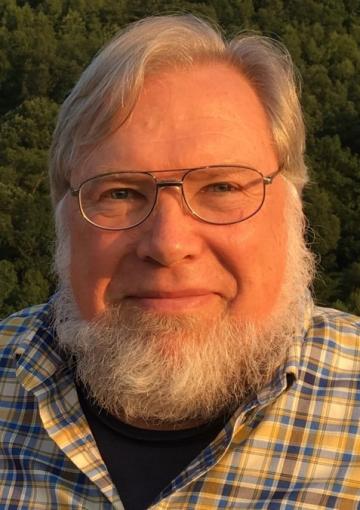Dr. Thomas Carew didn’t foresee a career in Kentucky’s Appalachian region, and he certainly never saw himself working in housing construction or raising the funds to build them. In the early 1970s, Thomas Carew, a Flushing Queens, New York native, was studying politics and philosophy at Fairfield University in Connecticut when a faith-based mission trip altered the course of his life , and kindled a passion to serve residents of Kentucky’s Appalachian region.
Raised in the Catholic faith, Carew’s mother taught that “the service we render to others is the rent we pay for our room on this earth,” a quote attributed to a good many sources over the years, including Sir Wilfred Grenfell and Muhammad Ali. Although Carew returned to Fairfield at the conclusion of his mission trip, he was haunted by the specter of Appalachia and the squalor in which families there lived. Leaving college behind, Carew returned to the Glenmary Farm in Vanceburg, Kentucky and rolled up his sleeves, intent on easing suffering and restoring hope.
Carew and Molly Barrett met while working with Glenmary Missioners. A kindred soul with a servant’s heart, Barrett was a Minnesota nursing student there to teach Bible school. The couple’s courtship was largely long-distance while Molly paid off student loans through her enlistment as a Navy nurse. Upon leaving the service, Molly returned to Kentucky where she and Tom married and settled in Morehead, ultimately raising four children.
Beginning her civilian career as a home health provider, Molly eventually became an Advanced Registered Nurse Practitioner with St. Claire Medical Center, serving the Appalachian people alongside her husband, albeit in a different capacity.
Early on, as Carew worked alongside the Glenmary nuns he found daily inspiration in their demonstrations of ‘faith in action’. Although he had arrived with a few basic construction skills, the time at Glenmary honed Carew’s skills and he became licensed as an electrician, septic installer and contractor. Carew quickly realized that as important as the nuts-and-bolts construction of houses is, the acquisition of the funding to build and buy them is even more so.
“I realized very early on that building houses for people requires a lot of money, and money doesn’t grow on trees,” Carew remembers. “How do people of very little means obtain the financing that they need to provide them with better housing for their family? And how do they break out of the generational poverty holding them back? Those questions evolved into a lifetime journey that has brought me to where I am today.”
By 1974, Carew had teamed up with four local churches to form non-profit Frontier Housing. The Morehead-based organization was created to be a resource for Eastern Kentuckians in need of affordable housing opportunities. Carew laughs, “Turns out, I was much better at trying to find the money and other folks were much better at the construction side of things.”
While shepherding the growth of Frontier Housing, Carew saw the need for like-minded organizations to work “hand-in-hand” to find solutions for folks in need of high-quality affordable housing. In 1980 Carew became a founding member of the Federation of Appalachian Housing Enterprises, a consortium of mission-based entities now known simply as ‘Fahe,’ initially serving on the board of directors. Fahe’s philosophy of ‘strength in numbers’ is evidenced in its current network of over 50 nonprofits working together to empower the people and communities of Appalachia with the resources, opportunities and tools they need to build a better life.
With 25 years at the helm of Frontier Housing under his belt, Carew was presented the opportunity to apply all his accumulated knowledge to affect change on a much larger scale as Director of Construction and Design for the Kentucky Housing Corporation (KHC). Later, Carew accepted the position of Executive Vice President of Membership and Advocacy at Fahe, where he worked alongside Jim King, Fahe’s CEO.
“I’ve known Tom for 34 years. He’s always been sort of a hero to me, exemplifying characteristics I admire in a person who is dedicating their life to serving others,” explained King. “He did that with real backbone, but in such a humble way. Many times, I’ve watched him make a deliberate choice to be in partnership with others rather than to carve his own way. That speaks to the ‘stronger together’ mentality that was the impetus behind the creation of Fahe.”
Flash forward to 2022 and having accomplished so much, Carew was four years into retirement, enjoying a well-deserved rest on his laurels. His service to the Commonwealth’s rural poor had not gone un-noticed by his peers, and industry accolades like the Cochran Collings Award for service to rural America, the Kentucky coveted Dorothy L. Williams Lifetime Achievement Award and an honorary Doctor of Law degree from Carew’s alma mater stand in testament to his many accomplishments. But when the President of the United States came calling to offer a State Directorship position within the USDA’s Rural Development program, Carew didn’t hesitate. After all, it was a call he had been preparing his whole life to answer.
“Tom has always had a commitment to excellence,” King continued. “There was never this notion of ‘This is better than what the family had before’. With Tom it was always ‘This needs to be a place that I would be proud to call my own home.’ Tom always brought that sensibility to anything he did, and he continues to do that beautifully at the USDA. He thinks not just about what the family in front of him needs, but also about what it means in a regional and national way.”
Stacey Epperson, who refers fondly to Carew as a mentor and a friend, is the President and CEO of Next Step, an organization she created out of a desire to make factory-built homes a practical, sustainable solution for those looking to own their home.
In college, Epperson received a fellowship from HUD to study community development and sub-standard housing. In a position with the KHC, she met Carew while working with Frontier Housing and Fahe.
“When I was at KHC, there was a family that Tom took me to meet. There were so many kids, and they were living in what can only be described as a shack not fit for human habitation,” Epperson recalls. “I can’t remember names, but I’ll never forget their faces. Frontier was going to build them a house, and it left such an impression on me when I saw what he was doing. KHC adopted the family for Christmas, and we went back with Tom and took gifts to all those children. Tom orchestrated all that.”
Epperson had moved on from the KHC when Carew tapped her to fill his shoes at Frontier, facilitating his transition to KHC. Over the years, both Epperson and Carew had witnessed the proliferation of mobile homes in Appalachia and saw how low-quality and energy in-efficient they could be. While at Frontier, Epperson made it her mission to make high-quality manufactured housing an affordable option, and at her request Carew returned temporarily to the non-profit he founded to help her figure it out.
Carew acknowledges that across-the-board great strides have been made in the War on Poverty. Today most every Kentuckian has access to running water and functioning sewer systems. The state’s rivers and streams have been significantly cleaned up and upgraded roads and interstates crisscross the Commonwealth, improving people’s ability to access jobs and healthcare. Still, he asserts, there is a long way to go in Kentucky’s poorest rural towns.
That is the mindset Carew brings to the USDA RD position, along with his decades of experience and the one-on-one relationships he has built. Now uniquely placed to serve persistently impoverished rural communities, he looks forward to affecting change state-wide by assisting entire communities in accessing the funding they need to drive economic security and foster prosperity. And those that know him best know that as State RD director, Carew will continue to help those most in need to access safe, affordable housing.
“Tom was extremely honored to have received the presidential appointment. And while I can’t be certain, I have to think Tom is one of but a few people who have worked in the non-profit rural housing arena for over 50 years,” notes Mrs. Carew. “Many of his contemporaries have retired or passed on. But Tom knew that his lifetime of experience meant that he had a lot to offer in the USDA position.”
“He’s a very generous man, and that extends to his time. Service is really important to both of us, we believe that’s what we’re here for as we live in community with other people. I can say with certainty that Tom didn’t take the position for any fame or glory,” Mrs. Carew laughed. “He doesn’t particularly like awards and accolades, or even stories that key on him. But I know that it’s important for others who might be inspired to follow their own dreams and carry on this important work to hear his story—and I don’t think Tom would argue that.”
Reflecting on her long-time colleague’s USDA appointment Epperson says, “I think for Tom, this job is worth coming out of retirement to do. Tom has never met a stranger. He is genuinely interested in people in terms of who they are, what they do and what motivates them. He is out in the communities he serves, meeting new people. Those qualities are what makes Tom so well-suited to this kind of position.”
Recalling the devasting floods that swept through Eastern Kentucky shortly after Carew assumed his USDA directorship in 2022, King notes “Tom has an important job and it would be easy for him to be a ‘suit and tie’ kind of guy. But when those floods happened, Tom went down and mucked out houses. And he brought the Under Secretary with him. She wore work gloves and boots and helped. He extended his heart for service rather than to say, ‘I hold this position and I’m more valuable doing other things.’ No, Tom had to go and get his hands dirty.”
Epperson agrees and laughs, “I think Tom is having a blast right now. Living his best life and working his best job.”
Clearly for Carew, service remains key, and the sun never sets on doing good.


